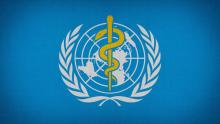Adolescence
On adolescent violence
School bullying and, more broadly, adolescent violence are social problems that cannot be solved by administrative decisions alone.
However, the state's mobilization is necessary to begin to systematically record and methodically deal with the problem. The measures announced by the government are a good start.
- Read more about On adolescent violence
- Log in to post comments
Post-pandemic surge in child eating disorders: A mother’s story, expert insights
What's it like to watch your 10-year-old son stop eating? What's it like to watch him get weaker and weaker, to see him disappear before your eyes day after day? "From one moment to the next, I felt like I was losing my child," Katerina (not her real name) tells Kathimerini. It happened a year and a half ago.
New WHO/Europe Study Reveals One in Six School-Aged Children Experience Cyberbullying
The World Health Organization (WHO) Regional Office for Europe today released the second volume of the Health Behaviour in School-aged Children (HBSC) study, which focuses on patterns of bullying and peer violence among adolescents across 44 countries and regions.
Adolescent Social Media Use Linked to Risky Behavior, Study Reveals
A recently published study in BMJ has raised concerns about the impact of social media on the behavior of adolescents.
Expert sounds alarm over Greece’s obesity problem
The weight of the average 18-year-old Greek man and woman has increased by 15 and 7 kilos respectively over the last 20 years - 2-4 kg more than their peers in America, and 3-5 kg more than other Europeans - according to a health expert speaking to the Athens-Macedonian News Agency.
- Read more about Expert sounds alarm over Greece’s obesity problem
- Log in to post comments
Teens still reading books in age of social media
Despite the prevalence of social media, two in five Greek teenagers choose to read books outside the school context, according to the findings of a nationwide survey conducted by University Mental Health, Neurosciences and Precision Medicine Research Institute.
- Read more about Teens still reading books in age of social media
- Log in to post comments
One in seven teens use too much social media
One in seven Greek teenagers (13%) spend so much time on social media it has a negative impact on their state of mind, according to preliminary data gathered by the Research University Institute of Mental Health (EPIPSY) as part of a nationwide survey into behaviors related to the health of adolescent students.
- Read more about One in seven teens use too much social media
- Log in to post comments
Social media use is linked to brain changes in teens, research finds
The effect of social media use on children is a fraught area of research as parents and policymakers try to ascertain the results of a vast experiment already in full swing. Successive studies have added pieces to the puzzle, fleshing out the implications of a nearly constant stream of virtual interactions beginning in childhood.
Survey: Teenage girls much more affected by internet than boys
Ljubljana – Primary and secondary school girls are much more preoccupied and negatively affected by the internet and online content than boys, shows a survey carried out by the Safe.si awareness centre. Girls are more likely to feel pressure, compare themselves with others, experience too little sleep or be affected by negative comments.
UNICEF: Romania ranks 2nd in EU in terms of birth rate among adolescent mothers
Romania ranks second in the European Union in terms of the birth rate among adolescent mothers, pregnancy in adolescence having many negative consequences on expectant mothers, as well as social and economic costs, according to a study conducted by UNICEF together with the SAMAS Association in Romania.









